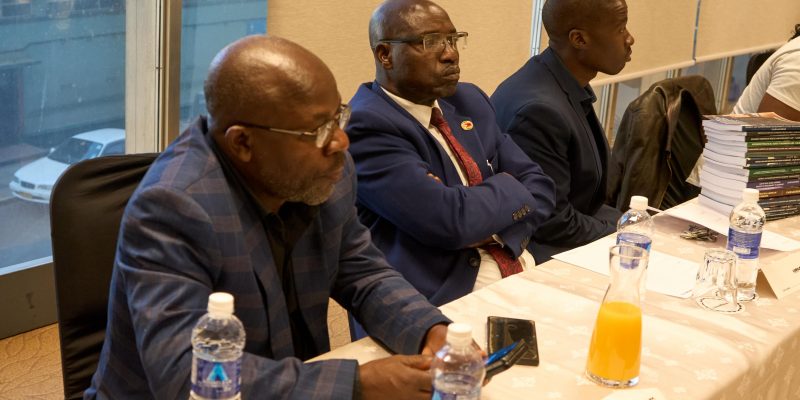To promote industrial harmony and equip Zimbabwean employers and employee representatives with deeper legal insight, Executive Solutions recently held a Labour Management Workshop that unpacked the intricate roles of National Employment Councils (NECs), Works Councils, and internal disciplinary procedures in labour dispute resolution.
Held under the banner “Labour Justice Through Dialogue and Due Process”, the workshop attracted stakeholders from diverse sectors, including human resources practitioners, union leaders, and legal minds. Leading the seminar was prominent labour law expert Mr. T. Zvomoyo, who provided robust interpretation of the Labour Act [Chapter 28:01], with particular emphasis on Sections 25A, 58, and 74.
Zvomoyo opened the session by challenging the conventional employer-centric outlook in industrial relations. “The Labour Act is not written to protect employer rights,” he asserted. “It exists to shield the employee, the weaker party in the employment relationship from abuse and exploitation. Employer power stems from capital ownership; legal protections, however, are reserved for the worker.”
By Ruvarashe Gora
The workshop stressed that NECs formal bipartite bodies consisting of employer associations and registered trade unions are indispensable in negotiating Collective Bargaining Agreements (CBAs), promoting fair labour standards, and preemptively resolving sector-wide disputes. In parallel, Works Councils, operating at the enterprise level, offer a platform for internal dialogue, particularly on productivity, restructuring, and employee welfare.
“NECs set the tone for conditions of employment industry-wide,” said Zvomoyo, “while Works Councils translate that dialogue into enterprise-specific practice. Both are grounded in the legal requirement for democracy in the workplace.”
But beyond policy, the workshop tackled the practical realities of workplace discipline. Participants were taken through the legal and procedural requirements for handling misconduct cases, particularly the need to align internal disciplinary processes with Section 101 of the Labour Act and the principles of natural justice.
Zvomoyo emphasized that fairness in workplace justice is not optional it is a legal duty. “A hearing is not just a box-ticking exercise. It is a mini-trial. The accused employee must be informed of the charges, given adequate notice, allowed to respond, and be judged by an impartial panel.”
Referencing landmark cases such as ZESA vs Mare and Nyahuma vs Barclays Bank, the session illustrated the consequences of procedural errors, poor charge formulation, and relying on insufficient evidence. Participants were taught that the burden of proof lies with the employer, and the standard in disciplinary hearings is “on a balance of probabilities” not the stricter criminal standard of “beyond reasonable doubt.”
Evidence, Zvomoyo said, must be relevant and verifiable. “Speculation and hearsay don’t belong in a hearing room. Only facts matter. Even when the misconduct appears obvious, due process must be followed, or the outcome risks being overturned on appeal.”
Participants were also reminded that both employers and trade unions could commit unfair labour practices. Failure to negotiate in good faith, refusing to implement agreed CBAs, and dealing with unregistered unions were cited as employer offenses. Trade unions, in turn, could be found wanting for contravening their own constitutions or initiating unlawful collective job actions.
Executive Solutions underscored its commitment to empowering Zimbabwean workplaces with legal literacy, ethical frameworks, and conflict resolution skills. The workshop left attendees better equipped to uphold fair labour practices, apply disciplinary codes correctly, and navigate the evolving landscape of industrial relations.
As the labour market continues to transform, such engagements serve as a critical pillar in ensuring justice, equity, and productivity in Zimbabwe’s workplaces





Comments